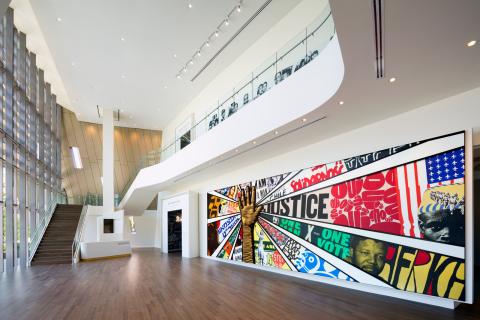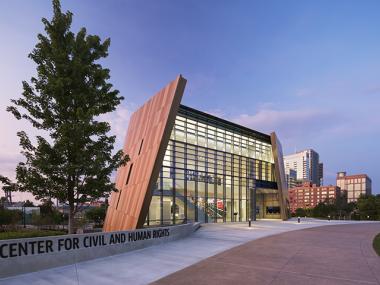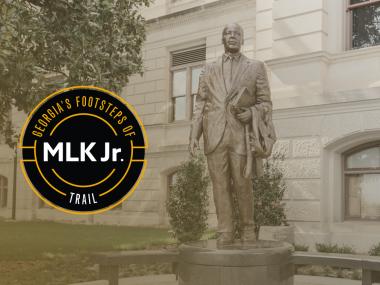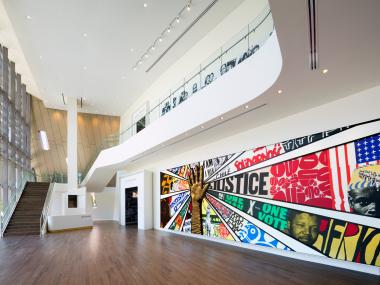9 Must-See Black History Tours for Groups
Experience and honor the state of Georgia's rich Black history.
Like a call-and-response spiritual sung by a choir, Black history in Georgia tells a story of triumph over tears, of hope despite hardship. Most sites honor achievements that would be remarkable under any circumstances but prove even more impressive given the obstacles of slavery, Jim Crow and segregation. A growing number of tourists from all backgrounds are learning more about Black heritage, and preservationists are responding with vibrant, revealing and engaging exhibits. Historians point out that Georgia compares favorably to other states when it comes to recognizing Black history, so consider these worthy options when planning your next heritage-themed tour.
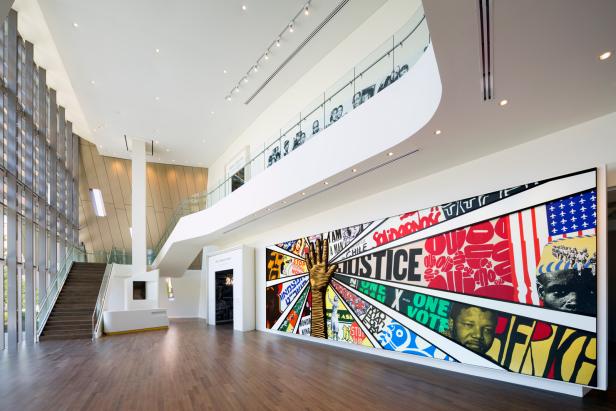
National Center for Civil and Human Rights in Atlanta
Center for Civil and Human Rights, Atlanta
Expect your consciousness to be raised, along with some goose bumps, as you explore the highly interactive, empathy-enhancing exhibits at the National Center for Civil and Human Rights in Atlanta. Take a seat at a simulation of the Montgomery Ward lunch counter sit-ins and learn just how much racist abuse you can tolerate, or come face to face and communicate with a life-size Hitler. The museum welcomes students, family reunions, church groups, and senior groups with discounted rates, however, many of its unsettling exhibits are not recommended for children pre-K through second grade.
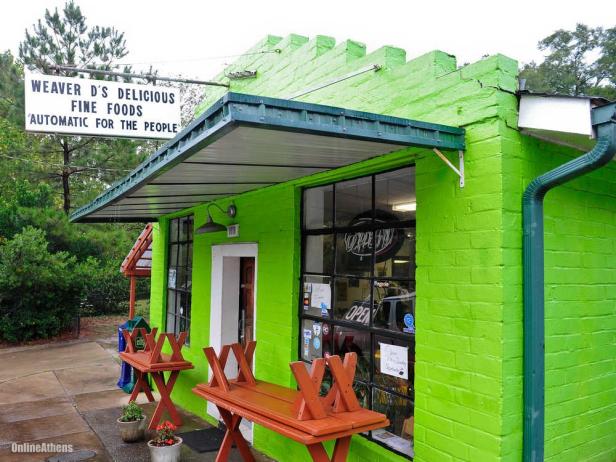
Weaver D's Delicious Fine Foods in Athens
African American Athens Driving Tour, Athens
The Athens-Clarke Heritage Foundation has plotted a driving tour with 21 storied stops, including the Morton Theatre, which was founded by Monroe Bowers "Pink" Morton, who was born a slave but by 1914, owned 30 buildings in Athens. It was the first vaudeville theater in the country built, owned and operated by a black citizen. Another stop, the Chestnut Grove School, is a one-room schoolhouse founded in 1896. Stop for lunch at Weaver D’s soul food restaurant, made famous by R.E.M.’s album, "Automatic for the People."
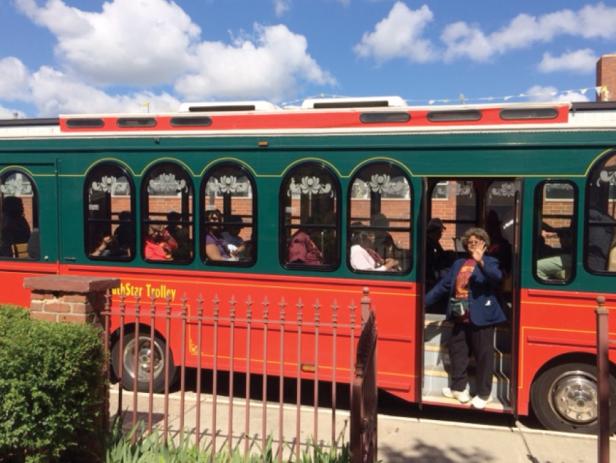
Augusta Black Heritage Trolley Tour
Augusta Black Heritage Trolley Tour, Augusta
This two-hour expedition welcomes conventions, family reunions, and student groups. The trolley, enclosed to be weatherproof, visits more than twenty-five locations associated with the city’s rich black heritage. Sites include the Silas X. Floyd House, home of the newspaper editor, and the James Brown statue, perfect for photographs. See the Springfield Baptist Church, established in 1787, which served as the birthplace of Georgia’s Republican Party as well as Augusta Baptist Institute, which later became Morehouse College. Included in the package is an hour-long, guided tour of the Lucy Craft Laney Museum.
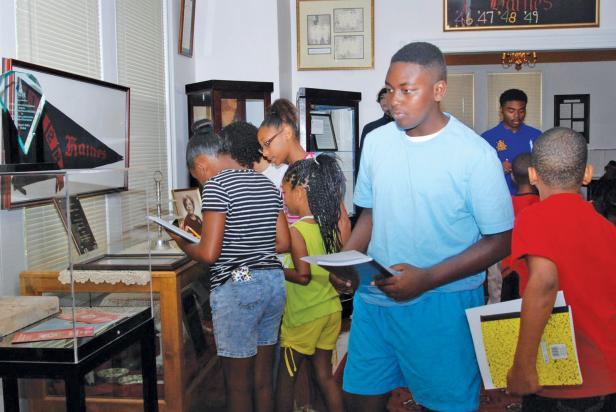
Lucy Craft Laney Museum of Black History in Augusta, Georgia
The Lucy Craft Laney Museum of Black History, Augusta
Lucy Craft Laney, the daughter of slaves, learned to read when her literacy was outlawed. She became a legendary educator who established Augusta's first black kindergarten, first black nursing academy and the first high school for black students. The museum employs guest curators who present rotating exhibits every month, and special senior luncheons — open to everyone but geared toward older visitors — with speakers who expound on these shows. Kids get social studies at the Children’s Academy Holiday Camp.
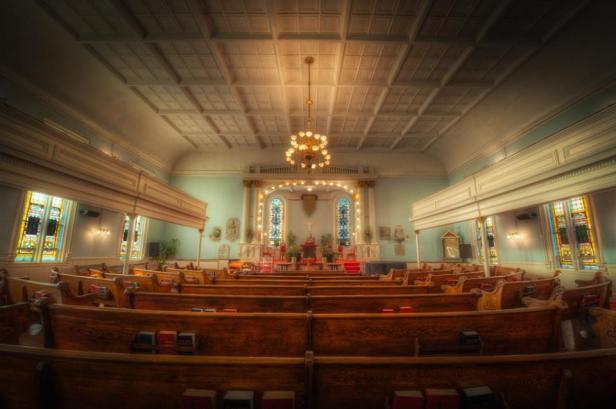
First African Baptist Church in Savannah
First African Baptist Church, Savannah
Slaves saved their money, and instead of buying their freedom, built this Savannah landmark, organized in 1773. The First African Baptist Church in Savannah is the first brick building in Georgia built by and for slaves, and it is believed to be the site of the country’s first Sunday school for black parishioners. Its founding pastor, the Rev. George Leile, became the country’s first missionary. The original stained glass windows can be seen on the edifice. The church gives tours with discounted rates for students, seniors, and military personnel.

City Market in Savannah
Footsteps of Savannah Walking Tour, Savannah
As a meticulously preserved port city, Savannah is uniquely positioned to offer illuminating lessons about slavery and the antebellum past. The Footprints of Savannah Walking Tour takes you through the City Market Square, which for 200 years was the city's center, and then on to a building that was transformed from a slave market to Freedmen’s School. The trail also stops at the Customs House, in a part of the city that has retained its architectural character since the 1850s. Tickets are discounted for groups, seniors and children.
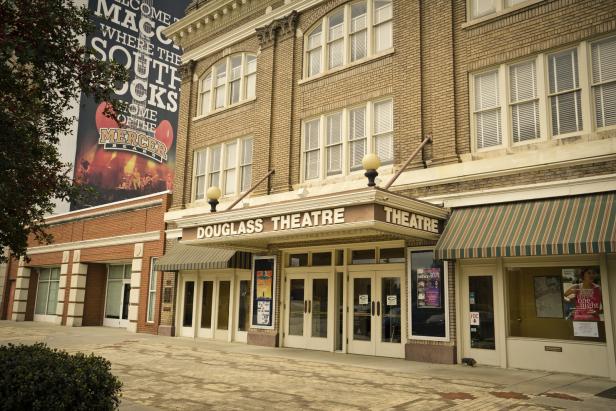
Historic Douglass Theatre in Macon, Georgia
Douglass Theatre, Macon
This 1921 landmark was a premier stop on the "chitlin' circuit," hosting vaudeville troupes and entertainers such as Bessie Smith, Ma Rainey and Cab Calloway. Later on, Georgia heroes Otis Redding, James Brown and Little Richard took the stage. Today, this theater serves as an aesthetic venue for concerts, conventions, film festivals and fashion shows. The Douglass Theatre screens movies (every second Wednesday, seniors admitted free) and streams concerts from the Metropolitan Opera, Lincoln Center and the National Theatre of London.
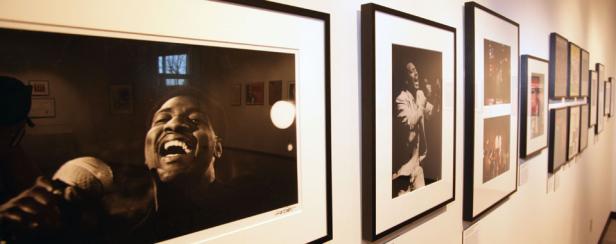
Tubman Museum in Macon, Georgia
Tubman Museum, Macon
The largest collection of African Americana in the Southeast recently moved into new quarters in Macon, with 49,000 square feet of space dedicated to black achievement in every field — including Little Richard's well-throttled piano. The Tubman Museum has enough variety in its permanent collection and rotating exhibits to customize tours for each group's interest, from quilts to tribal drumming. For corporate and academic retreats, 50 laptops are available, while the classroom offers a smart board, flat-screen television, DVD player and surround sound.
